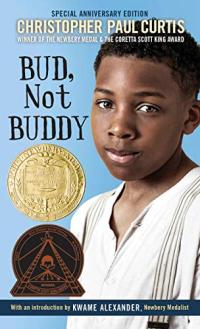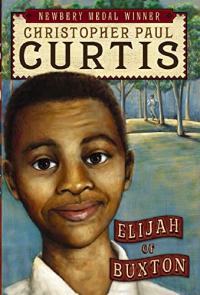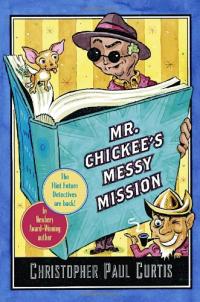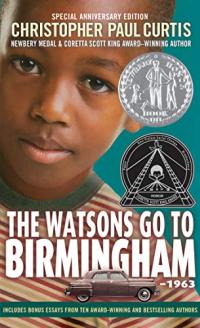
Biography
Christopher Paul Curtis was born in Flint Michigan in 1953. Growing up in an all-black neighborhood, the only white people he ever saw were the teachers at his school. From kindergarten through eighth grade, Christopher was a straight A student who thought he wanted to become a doctor like his father. But once in high school, Curtis lost interest in academics.
After high school graduation, Christopher Paul Curtis took a well-paying job at the local automobile factory. At first he bought a new car and enjoyed the perks of making high wages. But soon Curtis grew tired of the strenuous and monotonous work. While installing heavy car doors on the assembly line, he and his partner developed a system that enabled each of them to rest for 30 minutes out of every hour. During these breaks from the assembly line, Christopher Paul Curtis began to write.
After 13 long years at the factory, Curtis finally decided to take a year off to write a novel. This first novel, The Watsons Go to Birmingham — 1963, won both a Newberry Honor and a Coretta Scott King Honor. Curtis’ second novel, Bud, Not Buddy, received even higher praise. It won the Newbery Medal and the Coretta Scott King Award. Curtis’ overnight success as an author allowed him to leave manual labor behind and dedicate himself full-time to writing.
In 2024, Curtis was awarded the Coretta Scott King – Virginia Hamilton Award for Lifetime Achievement.
Today Christopher Paul Curtis lives with his wife and two children in Windsor, Canada. His most recent book, Elijah of Buxton, was published in October 2008.
Find this author’s books on these booklists
Themed Booklist
Holiday Buying Guide 2005
Themed Booklist
Holiday Buying Guide 2020
Themed Booklist
Learning to Make Responsible Decisions
Themed Booklist
Newbery Medal Winners
Themed Booklist











